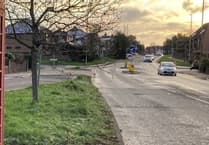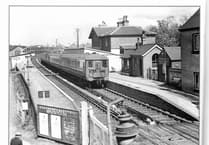Waverley households will see their council tax bills increase by £74.64 on average from April 1 after Waverley Borough Council became the final local authority to confirm its tax demands.
Taxpayers will on average pay the borough council an extra £5.85 annually in 2023/24 after the local authority approved a hike worth the fullest amount possible.
Waverley’s share of the tax bill will rise by 2.99 per cent despite an unexpected £1 million central-government windfall.
Tory opposition councillors wanted to see the cash go towards either freezing tax or keeping any increases as low as possible.
But the council’s cross-party, Lib Dem-led coalition said the rise allowed the council to balance its budget with “no cuts to services”.
Savings, according to the budget papers, were made in “property, business transformation, commercial and collaboration programmes”.
The decision was taken at a four-hour meeting of Waverley Borough Council on Thursday last week after the budget was agreed by a vote of 29 to 14 with no abstentions.
The increase is the equivalent of an extra £5.85 to the borough’s share of council tax for the average Band D home and follows rises at Surrey County Council of 2.99 per cent and the police and crime commissioner of 5.01 per cent.
Town and parish councils across Waverley have also increased their shares of the tax bill by on average 7.2 per cent.
This adds up to a total annual council tax bill for the average Band D home in Waverley of £2,262.78 – up 3.4 per cent or £74.64 on 2022/23.
Councillor Mark Merryweather (Lib Dem, Weybourne and Badshot Lea), portfolio holder for finance, commercial and assets, said the council was still £1m down from its pre-Covid levels of car parking income, that leisure centre revenue was still down and that, despite reaching a balanced budget this year, they still projected a shortfall in the medium term.
But Cllr Stephen Mulliner (Conservative, Haslemere East and Grayswood), leader of the Conservative opposition group, said he could not support the budget as it was a display of “waste, delay and delusions of grandeur”.
He said: “The penchant for grandiose schemes has been demonstrated by the collaboration with Guildford, the plan to become a major residential developer at Dunsfold Park, and the economically incoherent plan to convert Godalming’s crown court car park into a housing estate.
“Each involves the wasteful expenditure of large sums of council taxpayers’ money, with complaints answered often by saying, ‘don’t worry, it’s coming from reserve’.
“The council’s usable reserves of £13m are our deposit account and are a key component of our financial resilience.
“However, the administration seems to regard them almost as a bottomless piggy bank that can be raided without consequences.”
The collaboration with Guildford – where the two councils would share planning services – ranked as one of the “hastiest and least scrutinised decisions in recent local authority history”.
The merger, according to the council, is projected to save £700,000 a year but Cllr Mulliner said this was unreliable.
Cllr Peter Martin (Conservative, Godalming Holloway), said the windfall £1m the council received from central government should have been used to offset any council tax rise.
However, Cllr Liz Townsend (Lib Dem, Cranleigh West), portfolio holder for planning and economic development, said the increased funding allowed the council to maintain a balanced budget with “no cuts to services”.
And council leader Paul Follows said it had been a “herculean effort” to balance the borough’s budget in the face of crippling government cuts and spiralling inflation.
Cllr Follows (Lib Dem, Godalming Central) commended the council’s budget at last Thursday’s full council meeting, saying it “not only manages to protect vital services, but is also based on a sound and sensible medium-term financial strategy focused on efficiency, investment and income generation”.
However, after the council’s finance portfolio holder, Cllr Mark Merryweather, warned the council faces an unresolved funding gap rising to £2.3m in 2026/27, Cllr Follows said the borough will “continue to call on the government for a fair and long-term solution for council funding that allows us to properly protect and invest in our communities”.
He added: “The combination of continued government cuts and high inflation is incredibly difficult for us to deal with, because we have limited ability to increase our income.
“The last thing we want to do is pass cost increases on to our residents who are themselves being squeezed on all sides. But we have no alternative to maintain our community facilities and protect service levels for our residents.
“We have therefore worked very hard to ensure financial hardship funds are available and targeted to support the most vulnerable in our communities.”
By Chris Caulfield
Local Democracy Reporter




